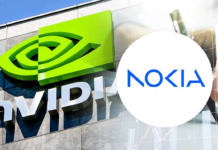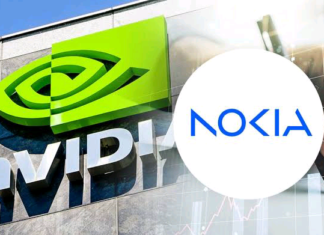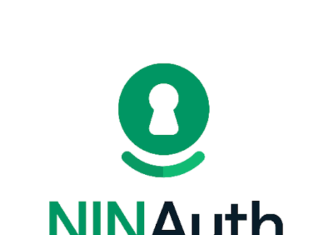When you purchase through links on our site, we may earn an affiliate commission. This doesn’t affect our editorial independence.
MTN Nigeria’s fintech arm made ₦131.62 billion ($91.64 million) in the first nine months of 2025, months after investing $240 million in AI data centre in Nigeria. Unsurprisingly, a considerable part of that came from MTN Airtime Lending, known as Xtratime. This is because the network provider has 89.64 million subscribers, with many Nigerians still dependent on borrowed airtime to stay connected.
However, while the numbers look strong, the story beneath them tells that the surge cannot sustain its fintech ambitions forever. Notably, the company’s latest investor call on October 31, 2025, revealed a more profound shift in focus. This confirmed the move to go beyond airtime credit toward advanced financial services and long-term digital growth.
The Numbers Behind the Boom
Forging ahead, core fintech revenue, excluding MTN Airtime Lending, stood at ₦6.8 billion ($4.73 million), up 142.86% from ₦2.8 billion ($1.95 million) the previous year. It’s noteworthy that the growth was driven by increased interest income and broader adoption of MTN’s advanced digital services.
During the call, MTN’s CEO, Karl Toriola, emphasised that the company still sees “substantial opportunities for growth and diversification.” He observed that disciplined execution and a sharper fintech strategy are key to accelerating innovation. In addition, this expands its ecosystem and deepens customer engagement across Nigeria.
In the same vein, this new direction evidences a conscious migration from quick gains through MTN Airtime Lending to more sustainable growth. Yet again, this was driven by service expansion and ecosystem strength.
The Fintech Race in Nigeria
Mobile money stands as one of Nigeria’s fastest-growing financial sectors. TechPolyp observes that in the first quarter of 2025 alone, transactions reached ₦20.71 trillion ($14.42 billion), according to the Nigeria Inter-Bank Settlement System (NIBSS).
Moving forward, the space is primarily dominated by non-telco players like OPay and PalmPay. OPay, for example, reported 10 million daily active users and 100 million daily transactions in 2024. PalmPay followed closely, processing 15 million daily transactions.
Despite their massive subscriber bases, telco-backed payment service banks such as MTN’s MoMo, Airtel’s SmartCash, 9mobile’s 9PSB, Globacom’s Money Master, and Hope PSB from Unified Payments have struggled to scale. TechPolyp observes that its challenge is in adapting to a market that’s already mature.
Airtel Africa’s CEO, Sunil Taldar, summed it up during his company’s fiscal Q1 2026 earnings call. He said, “The Nigerian fintech market is well-developed compared to many others.” In other words, growth here needs deep innovation.
MTN Airtime Lending: Shifting Models and Growing Networks
In response, telcos like MTN and Airtel are rethinking their fintech playbooks. In addition, Airtel is focusing on agent networks and digital capabilities to capture a share of Nigeria’s thriving mobile payments sector.
Conversely, MTN is doubling down on what it calls “advanced services” and high-value customers. Between December 2024 and September 2025, its active agent network grew by 73.6%, while its merchant network expanded by 42.6%.
The company describes this as a deliberate move to optimise distribution quality and build a sustainable fintech ecosystem for the long run. The data supports the momentum as active MoMo wallets rose by 1.6% to 2.9 million. In the same vein, customer deposits soared 146.43% year-on-year to ₦6.9 billion ($4.80 million).
While MTN Airtime Lending still drives the bulk of earnings, these new numbers show where MTN’s long-term ambitions lie: building a more diversified digital financial platform.
MTN Airtime Lending: Inside MTN’s Fintech Strategy
According to Phrase Lubega, CEO of MoMo PSB, MTN is now digitising value chains and solving real payment challenges. “We see continuous usage of customers coming to make payments through those value chains, and that has helped drive the momentum we expect,” he said during the investors’ call.
Rather than aggressively chasing new distribution, MTN is maximising existing networks. Lubega explained that the company is leveraging its agent base to achieve steady growth without unnecessary expansion costs.
The focus is now on onboarding advanced services that attract high-value users. “As we deliver more advanced services, more high-value customers engage and interact, driving additional momentum,” Lubega added.
These remarks align with MTN’s broader goal: using fintech not just to lend airtime, but to deepen financial inclusion and build a sustainable digital economy.
The Long Road to Fintech Maturity
When the Central Bank of Nigeria (CBN) introduced Payment Service Bank (PSB) licences in 2018, the goal was to replicate Kenya’s M-Pesa success story. Nevertheless, the Nigerian market hasn’t quite mirrored that outcome.
Airtel Nigeria’s mobile money business processed only $1.5 billion between April and September 2025. This is just 1.7% of Airtel Africa’s total mobile money transactions, which amounted to $88.8 billion. Revenue from Nigeria contributed a mere $4 million, or 0.64%, of Airtel Africa’s $623 million fintech earnings, despite the country’s size.
Still, optimism remains. Airtel’s Taldar believes that PSBs will eventually find their moment. “Nigeria is taking its time, but given the strength of this market, it is only a matter of time,” he said in July 2025.
The GSMA, the global telecoms industry body, echoes that view. It argues that telcos’ scale, infrastructure, and access to capital will eventually give them an edge in catching up.
From MTN Airtime Lending to Lasting Value
For now, MTN Airtime Lending remains the most significant contributor to MTN’s fintech revenue. But even the company admits it can’t depend on this single stream forever. Airtime credit addresses a pressing need to keep Nigerians connected. However, it doesn’t drive the kind of financial inclusion MTN wants to be known for.
Karl Toriola made this clear on the call: “Our fintech strategy is focused on unlocking long-term value and advancing financial inclusion. We’re focused on the quality of our wallets and the customers we acquire.”
That message signals a phase of recalibration. MTN is building a scalable, sustainable fintech platform that can deliver attractive returns while deepening its role in Nigeria’s digital economy.
The Next Chapter’s Outlook
MTN’s current momentum rests on a delicate balance of sustaining the profitability of MTN Airtime Lending alongside sustaining digital financial services that can compete with OPay, PalmPay, and other fintech giants.
Furthermore, its success will depend on how effectively it can transition from a telecom-first brand to a fintech-driven ecosystem. The groundwork is already visible, expanding agent networks, digitising value chains, and targeting high-value users.
The road is long, but MTN seems ready for it. In another new, it tightens grip on Nigeria’s fixed broadband market recently. On the other end, Nigeria’s fintech market is maturing. Therefore, the company’s bet on advanced services may finally position it where it has always wanted to be.








